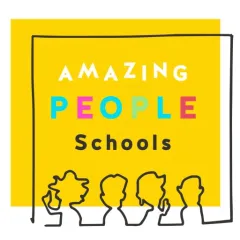![8b49a0c98ec527ed729a61a1076a0e81c399e2a3[1]](https://about.amazingpeopleschools.com/wp-content/uploads/2023/07/George-Webster-cropped-31.png)
George Webster
“Enjoy every moment and take every opportunity as it comes.”
Who Am I?
From Leeds, England, George Webster was born with an incredible talent and Down syndrome. He is a rising star as a TV host, actor and dancer. People with Down syndrome are born with an extra chromosome (47 instead of the usual 46). The extra chromosome causes delays in the way a child develops mentally and physically. Often, it is perceived that people with Down syndrome have limitations on their abilities. However, George’s parents ensured that George was given the same opportunities as children without his condition.
What Am I Known For?
In September 2021, George Webster joined the BBC CBeebies team as the UK’s first children’s and BBC television presenter with Down syndrome. He won a BAFTA Children & Young People Award for his work on CBeebies as a presenter.
He is also an ambassador for Mencap and Parkrun, where he is seen as a brilliant role model. George entertained the world when he appeared in a celebrity version of Strictly Come Dancing (Christmas Special 2022), which he described as a dream come true. His accomplishments are many; however, he does not take any of them for granted and is very grateful for everything he has achieved. George hopes to continue to help change the view that many people have about Down syndrome. He wants people to stop seeing Down syndrome and start seeing the individual.
Each year, World Down Syndrome Day is celebrated on March 21st. The date represents the triplication (three copies) of chromosome 21.
How About You?
Watch George’s Myth-Busting Video: https://www.bbc.co.uk/programmes/p09kyydg/player
Celebrate difference in your school by having a day of wearing odd socks, or blue and yellow clothing, which represents Down syndrome.
What are the ways we can help change the mindset of how we might view people with disabilities in our society?
Other Useful Resources (available on the website)
Our Teacher’s Guide to Open-mindedness is a handy resource. We explore how to recognise and encourage open-mindedness in the classroom and how to promote it.
Subscribers can find this helpful resource by logging in. If you are not a subscriber, you can access this resource, and many more, by starting a free trial.
Photo: Copyright BBC
